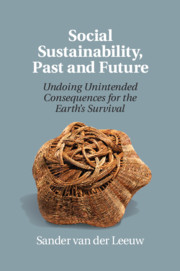Field research and predictive modelling of global warming and desertification by environmental scientists in the Mediterranean has concentrated on the short term. In this paper, it is argued that collaboration between the historical sciences, especially archaeology, and the environmental sciences can provide a longer-term perspective on desertification in the Mediterranean. Such collaboration has taken place recently in the Vera basin (Almería, south-east Spain), with the financial support of the European Union. Details of the archaeological and historical sequences of occupation in the basin are given, before presenting the main trends in demography, settlement and political systems from 4000 BC until the present day. This is followed by details of the long-term record of degradation in the Vera basin. The paper concludes by using the long-term record to propose recommendations for the future management of this landscape.


